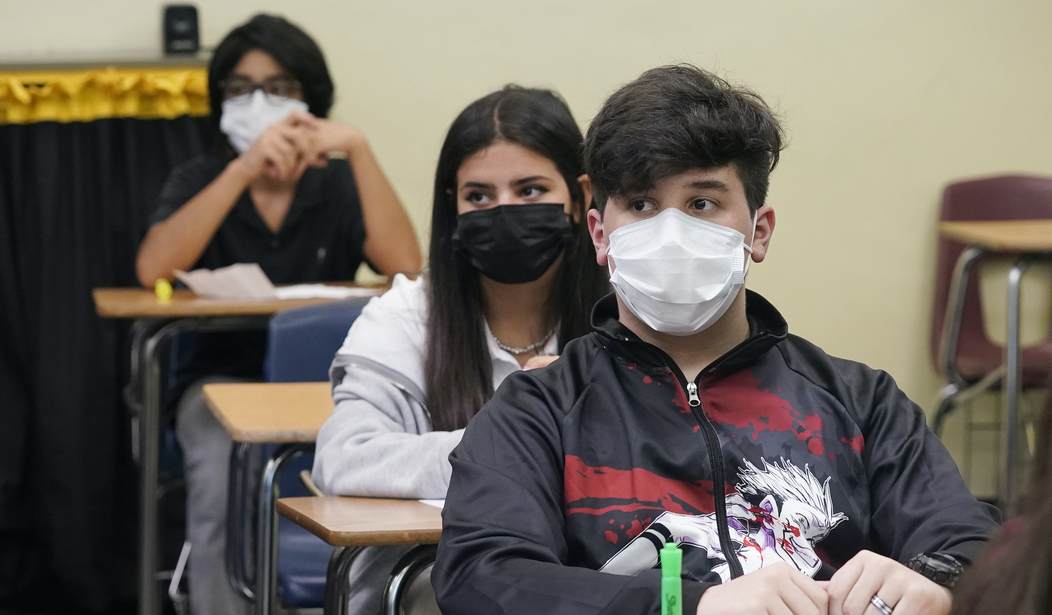Did you know that the federal judge who vacated the federal mask mandate for airline and public transit passengers on Monday is only 35? The New York Times thought that detail was important, and so did Slate legal writer Mark Joseph Stern.
The fact that critics of U.S. District Judge Kathryn Kimball Mizelle's 59-page decision focused on her age rather than her reasoning reflects the confusion of people who tend to assume that any COVID-19 control measure they view as sensible must also be legal. These are two distinct questions, and conflating them amounts to rejecting the rule of law.
Mizelle was responding to a lawsuit challenging an "order" that the Centers for Disease Control and Prevention published in the Federal Register on Feb. 3, 2021. She concluded that the rule, which applied to taxis and ride-sharing services as well as airplanes, airports and public transportation systems, exceeded the CDC's authority and violated the Administrative Procedure Act.
The CDC issued its mask mandate under a provision of the 1944 Public Health Service Act that authorizes regulations to prevent the interstate spread of communicable diseases. The law mentions "inspection, fumigation, disinfection, sanitation, pest extermination" and "destruction" of infected or contaminated "animals or articles" as well as "other measures" deemed "necessary."
When the CDC cited the same provision to justify its nationwide eviction moratorium, it argued that the phrase "other measures" authorizes any disease control measure it considers appropriate. The Supreme Court rejected that "breathtaking" power grab, saying the list of specific examples "informs the grant of authority by illustrating the kinds of measures that could be necessary."
Recommended
In light of that principle, Mizelle said, the relevant question is whether the CDC's mask mandate qualifies as a "sanitation" measure, as the agency contended, or something similar. She cited five reasons for rejecting that reading: "the context of the nearby words," contemporaneous usage, the sweeping implications of the government's argument, the history of the provision's application and the fact that it seems to be "limited to property."
Mizelle also concluded that the CDC had "improperly invoked" the "good cause" exception to the APA's "notice and comment" requirement for new rules. And she said the mask mandate was "arbitrary and capricious" because the CDC "failed to adequately explain its reasoning."
Mizelle backed up all three of those conclusions with extensive discussion and cogent reasons. But instead of explaining why she was wrong, Stern complained that "a single unelected, life-tenured, 35-year-old judge just abolished the air travel mask mandate for the entire country."
In Stern's view, that was intolerably undemocratic. He asked, "Who should decide whether air passengers must wear masks: A federal agency staffed with experts accountable to the president, who is accountable to the people? Or a 35-year-old Trump judge in Tampa?"
The issue in this case was not whether it makes sense to require that travelers wear masks. It was who gets to decide that and under what legal authority -- a question that squarely resides with the judicial branch, not with the "experts" at an executive agency.
Federal judges are unelected and have life tenure to insulate them from political pressures when they answer such questions. That is a feature, not a bug, because under our system of government, presidents do not get to do whatever they want, even if the majority demands it. Their policies must be consistent with the law.
Neither Mizelle's age nor the fact that Donald Trump nominated her have anything to do with whether she did her job properly. When Stern calls her a "Trump judge," he is echoing Trump, who dismissed a ruling he did not like as the politically motivated work of "an Obama judge."
Judicial independence is essential to upholding the rule of law. Partisans attack both when they suggest that judges have no business interfering with the policies of democratically elected politicians. That is precisely what they are supposed to do when the law requires it.
Jacob Sullum is a senior editor at Reason magazine. Follow him on Twitter: @JacobSullum. To find out more about Jacob Sullum and read features by other Creators Syndicate writers and cartoonists, visit the Creators Syndicate webpage at www.creators.com.
COPYRIGHT 2022 CREATORS.COM

























Join the conversation as a VIP Member